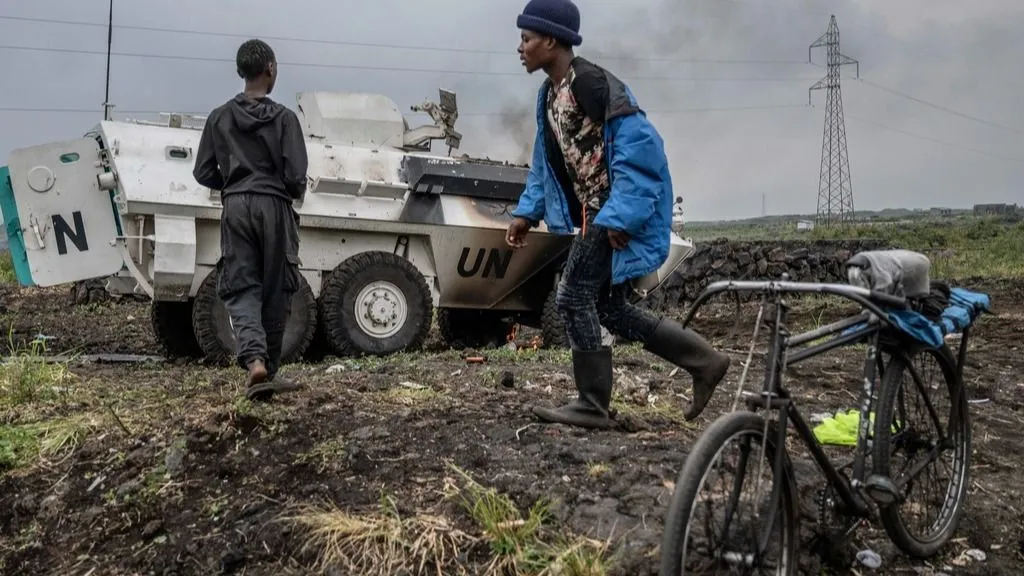Unveiling the Congo: What You Need to Know About the Latest Developments
The Democratic Republic of Congo (DRC) is a nation rich in natural resources but burdened by a history of conflict and poverty. As of 2024, approximately 73.5% of the population lives on less than $2.15 a day, making it one of the poorest countries globally. The ongoing humanitarian crisis, exacerbated by decades of violence, has left millions struggling for basic necessities. This article delves into the latest developments in the DRC, shedding light on the complex issues that the nation faces.
The DRC has been embroiled in violent conflict for over three decades, leading to the deaths of millions and displacing over 8 million Congolese people. Since the beginning of 2024 alone, more than 738,000 individuals have been newly displaced. The conflict has not only resulted in loss of life but has also deepened the humanitarian crisis, making access to health care, education, and infrastructure increasingly challenging.
Recent violent attacks have specifically targeted humanitarian workers, including those responding to the Ebola crisis. These incidents underscore the dangers faced by individuals and organizations striving to provide aid in one of the world’s most complex humanitarian crises. The legacy of conflict has pushed the country to a breaking point, intensifying issues such as poverty, malnutrition, and a lack of access to essential services.
International organizations, including the UNHCR and various NGOs, are actively engaged in addressing the humanitarian needs of the displaced populations. Their efforts are vital in providing food, shelter, and medical care to those affected by the ongoing violence. However, the challenges remain immense, with the DRC’s rich natural resources, such as minerals and forests, often fueling further conflict rather than fostering peace.
The education system in the DRC is in dire straits, with many children lacking access to quality education. The statistics are alarming: a child in the DRC is expected to complete 9.1 years of schooling by their 18th birthday, but when adjusted for learning, this translates to only 4.5 years of effective education. This gap perpetuates the cycle of poverty, as children grow into adults without the skills necessary for economic advancement.
Looking ahead, the DRC is approaching a critical juncture. The upcoming elections scheduled for late 2025 are viewed as a potential opportunity for democratic progress. However, the current political landscape is fraught with challenges, including human rights violations and the suppression of dissent. The government has faced criticism for its handling of these issues, raising concerns about the future of democracy in the DRC.
The health system in the DRC is under severe strain, with outbreaks of diseases such as measles and cholera occurring alongside the ongoing Ebola crisis. The COVID-19 pandemic has further complicated matters, leading to significant vaccine hesitancy and a decline in healthcare utilization. The result has been a secondary health crisis, with millions missing routine vaccinations, which could have long-term implications for public health.
Environmental degradation also poses a significant threat to the DRC’s ecosystems and the livelihoods of local communities. Illegal logging and mining activities are rampant, jeopardizing biodiversity and the sustainability of natural resources. The DRC is home to unique species, including the critically endangered mountain gorilla, which is a focal point for conservation efforts.
The impact of climate change is increasingly felt in the DRC, with changing weather patterns affecting agriculture and food security. As the agriculture sector employs over 60% of the workforce, this vulnerability to climate-related risks is substantial. The need for sustainable practices and resilience-building initiatives is more urgent than ever.
Grassroots movements and local NGOs are emerging as crucial players in advocating for human rights and community development. These organizations often fill gaps left by larger entities, providing essential services and support to vulnerable populations. Their efforts are vital in creating a more equitable society, where the voices of the marginalized are heard and addressed.
In conclusion, the Democratic Republic of Congo stands at a crossroads. The challenges are immense, but with ongoing international attention and support, there is hope for addressing the humanitarian crisis and fostering long-term development. The resilience of the Congolese people, combined with the commitment of local and international organizations, may pave the way for a brighter future in this resource-rich yet troubled nation. The world watches as the DRC strives for peace, stability, and a chance to realize its vast potential.






Leave a Comment